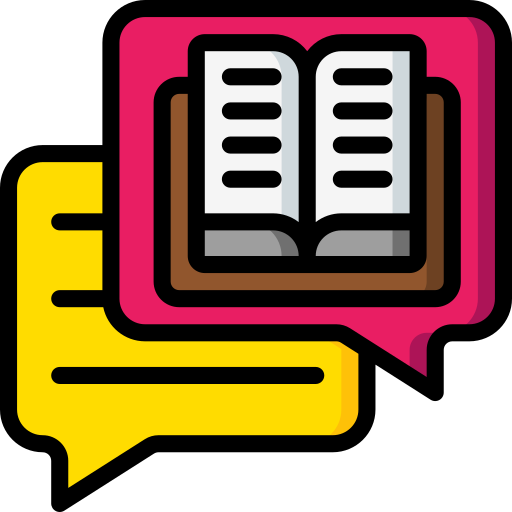 Turning the Page on Pedagogy (TPP) is a book club that serves the community of teachers and learners in higher education, in Groningen, the Netherlands. The book club is open to everyone (students and teachers alike) who is interested in educational philosophy, didactics, and educational practice. We meet four times per year and share conversations about a book that we select and read. TPP is an initiative of Tassos Sarampalis, but belongs equally to all its participants. It is supported by the Teaching Academy Groningen.
Turning the Page on Pedagogy (TPP) is a book club that serves the community of teachers and learners in higher education, in Groningen, the Netherlands. The book club is open to everyone (students and teachers alike) who is interested in educational philosophy, didactics, and educational practice. We meet four times per year and share conversations about a book that we select and read. TPP is an initiative of Tassos Sarampalis, but belongs equally to all its participants. It is supported by the Teaching Academy Groningen.
To sign to receive updates about future events and give your input on book choices, leave your name and email address using the form on the right-hand side.
How to prepare for the book club
- Find a copy of the book. The University library usually has a copy of the book we read, but you might also prefer to acquire a private copy, in print or as an ebook. If purchasing a copy is beyond your means, please contact me; this should not be a barrier to participation.
- Read the book! Take notes, highlight passages of particular interest, identify questions that come up as you read, feelings, examples, applications, dreams, frustrations, and joys. They can all provide a basis for connection and discussion during the book club. We sometimes use a collaborative Jamboard if you like to share these notes.
- Join us on with an open heart and mind!
Upcoming Books:
There are currently no scheduled events.
You can sign up to receive information for new events in the future.
Books we’ve read so far:
The first edition of the book club took place on November 2nd, 2023. We read bell hooks’ book Teaching to Transgress.
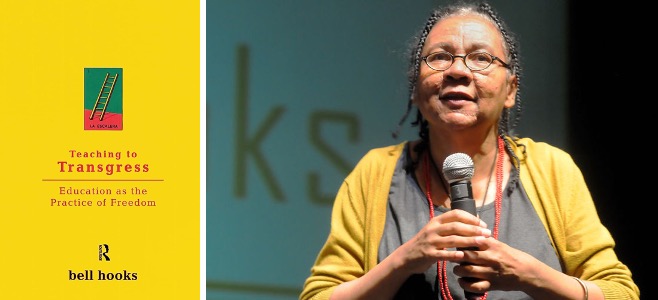
Teaching to Transgress was published in 1994 and is bell hooks’ first in a series of three teaching-themed books, followed by Teaching Community: A Pedagogy of Hope (2003) and Teaching Critical Thinking: practical wisdom (2010).
The book delves into the realm of education as a means of liberation. It presents a series of essays that critique traditional pedagogical practices and advocate for a teaching approach that is inclusive, engages with the students’ realities, and challenges oppressive systems. hooks emphasizes the importance of creating a ‘learning community’ that values diversity and promotes critical thinking. The book is significant for its exploration of how education can be a tool for social change, encouraging educators to foster environments where students can learn to question, challenge, and transgress boundaries. hooks’ insights on pedagogy, race, gender, and class in education continue to influence educators and students aiming for a more equitable and just society.
You can read more about bell hooks on the Berea College page.
The second edition of the book club took place on January 25th, 2024. We read Susan Blum’s book Ungrading: Why rating students undermines learning.
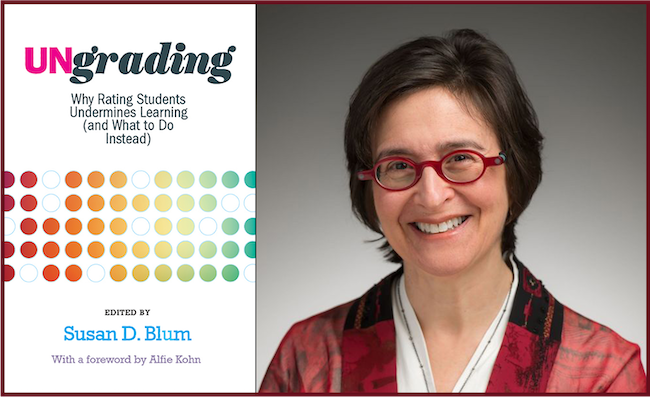
The book provides a greater understanding of why there is a growing number of educators considering that grades should be eliminated from the educational system. This assessment for learning book is significantly helpful as it provides theoretical and practical groundings for educators who are troubled by the current grading system. Throughout this book, ungrading conceptualizations, applications and reflections are threaded into 13 diverse yet commensurable course experiences of novice and experienced practitioners who teach humanities, social sciences and STEM at schools, universities, and colleges in North America. Ungrading is a close, collegial, and engaging book that brings a deep reflection into our assessment models, practices, and experiences. Most importantly, it incentivizes us to visualize a ‘what if’ scenario, acknowledging the tensions and challenges experienced by instructors who have reduced or eliminated grades almost ubiquitous presence in the educational system.
You can read more about Susan Blum on her website: http://www.susanblum.com/
The third edition of the book club took place on April 2nd, 2024. We read Co-creating Learning and Teaching: Towards Relational Pedagogy in Higher Education, by Catherine Bovill. You can access the eBook through the University’ Library.
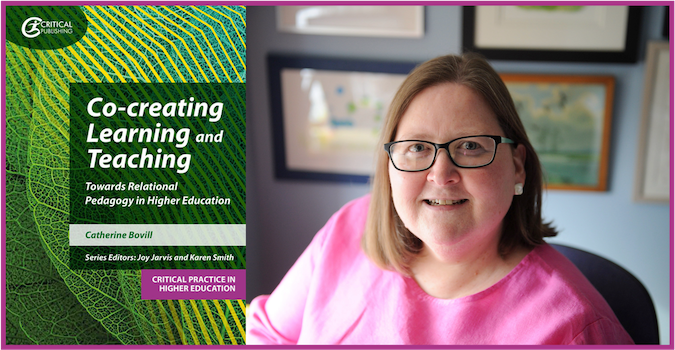
Co-creation of learning and teaching, where students and staff collaborate to design curricula or elements of curricula, is an important pedagogical idea within higher education, key to meaningful learner engagement and building positive student-staff relationships. Drawing on literature from schools’ education, and using a range of examples from universities worldwide, this book highlights the benefits of classroom-level, relational, dialogic pedagogy and co-creation. It includes a focus on the classroom as the site of co-creation, examples of practice and practical guidance, and a unique perspective in bringing together the concept of co-creation with relational pedagogy within higher education learning and teaching.
Catherine Bovill is Professor of Student Engagement in Higher Education at the University of Edinburgh.
The fourth edition of the book club was on June 20th, 2024. We read the book Decolonising the University, edited by Gurminder K. Bhambra, Dalia Gebrial and Kerem Nişancıoğlu. You can access the eBook for free.
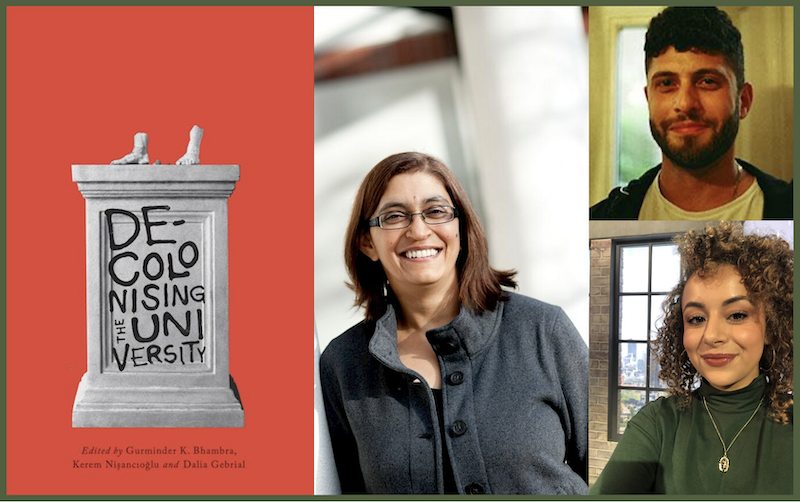 Information from the publisher:
Information from the publisher:
In 2015, students at the University of Cape Town demanded the removal of a statue of Cecil Rhodes, the imperialist, racist business magnate, from their campus. The battle cry ‘#RhodesMustFall’ sparked an international movement calling for the decolonisation of the world’s universities.
Today, as this movement grows, how will it radically transform the terms upon which universities exist? In this book, students, activists and scholars discuss the possibilities and the pitfalls of doing decolonial work in the home of the coloniser, in the heart of the establishment. Subverting curricula, enforcing diversity, and destroying old boundaries, this is a radical call for a new era of education.
Offering resources for students and academics to challenge and resist coloniality inside and outside the classroom, Decolonising the University provides the tools for radical pedagogical, disciplinary and institutional change.
Origins
Turning the Page on Pedagogy was co-created as a student project within the Honours College programme in the Spring Semester of 2023. The project created a new Book Club in the academic community of learners and teachers in Groningen and discussed Paulo Freire’s seminal book Pedagogy of the Oppressed and the ideas of the educational philosophy of Critical Pedagogy. The book explores the relationship between education, oppression, and liberation. Freire criticizes traditional education for its “banking” approach, where teachers deposit information into passive students, reinforcing societal hierarchies. Instead, he advocates for a dialogical method, where teachers and students learn collaboratively, recognizing knowledge as a tool for empowerment and social justice. Critical pedagogy, inspired by Freire’s ideas, challenges the power dynamics in education, aiming to transform it into a practice that fosters critical thinking, equality, and active participation in society. It emphasises the role of education in liberating oppressed populations by encouraging a critical awareness of social injustices and promoting transformative action.
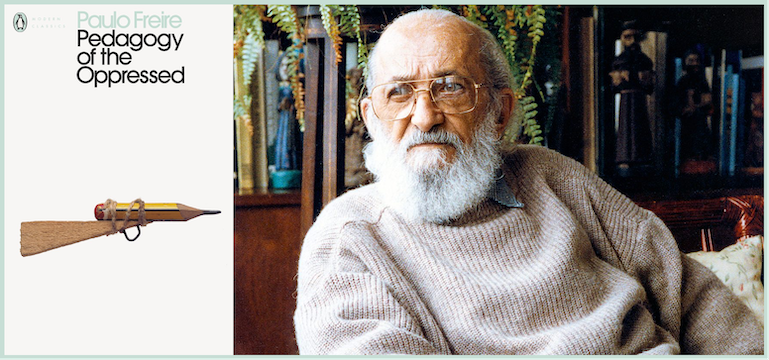
Origins
Turning the Page on Pedagogy was co-created as a student project within the Honours College programme in the Spring Semester of 2023. The project created a new Book Club in the academic community of learners and teachers in Groningen and discussed Paulo Freire’s seminal book Pedagogy of the Oppressed and the ideas of the educational philosophy of Critical Pedagogy. The book explores the relationship between education, oppression, and liberation. Freire criticizes traditional education for its “banking” approach, where teachers deposit information into passive students, reinforcing societal hierarchies. Instead, he advocates for a dialogical method, where teachers and students learn collaboratively, recognizing knowledge as a tool for empowerment and social justice. Critical pedagogy, inspired by Freire’s ideas, challenges the power dynamics in education, aiming to transform it into a practice that fosters critical thinking, equality, and active participation in society. It emphasises the role of education in liberating oppressed populations by encouraging a critical awareness of social injustices and promoting transformative action.

